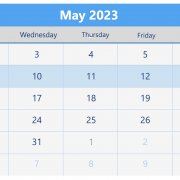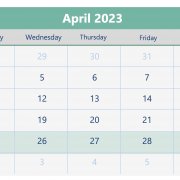7 days in healthcare (August 19th-25th, 2024)

Summary
Biomedicine
- Brain implants to reduce Parkinson’s symptoms. Implants reduce Parkinson’s symptoms by reading brain activity. Parkinson’s is known to affect about 10 million patients globally. This approach, called deep brain stimulation (DBS), reduces Parkinson’s motor symptoms by half.
Global Health
- The need for international coordination on Mpox. Editorial from The Lancet. 15 months ago, the WHO concluded that the Mpox outbreak no longer represented a Public Health Emergency of International Concern (PHEIC). On August 14, the WHO declared this Emergency for Mpox, following a declaration a day earlier by the African Center for Disease Control and Prevention. The strain is called clade 1b Mpox1, which is genomically distinct and more deadly than the one in the 2022-23 outbreak. More than 16,000 infections and 500 deaths have been reported in Congo in 2024. Cases have also been reported in the Central African Republic, Rwanda, Burundi, Uganda and Kenya, while Sweden and Pakistan have reported imported cases. The hope is that PHEIC will trigger an international response.
- Mpox vaccines are not reaching Africa. The slow WHO regulatory process is blamed for the lack of vaccines. While some developed countries have their own regulatory bodies, many African countries rely on WHO regulation, which is especially cautious and slow.
- Covid is resurgence again, although with fewer severe cases. New variants that evade immunity are causing a massive summer wave.
International health policy
- Abortion takes centre stage in the American elections and, in particular, at the Democratic convention. At this major event, the star was Hadley Duvall, a woman from Kentucky, who had become pregnant at the age of 12 by her stepfather and asked Trump about his description of the abortion ban as a “beautiful thing”.
- AI and healthcare productivity. The Nuffield Trust analyses whether AI is the “silver bullet” that will improve healthcare productivity. Although high hopes have been placed on the NHS, this article sets out certain cautions: 1. Limitations of the current information infrastructure; 2. Regulatory considerations; and, 3. Ethical considerations that the application of AI minimises the core values of the NHS, patient-centredness, services based on need not the ability to pay.
- Major conflicts in India over the rape of a doctor. The rape and murder of a doctor in India is generating major conflicts. There are 32,000 reported rapes in India in 2022, the last year with official figures, although the number may be much higher. The rape and murder of a 31-year-old doctor in training in West Bengal has sparked protests by women across the country.
- The first non-Covid mRNA vaccine is approved in Europe. The mResvia, manufactured by Moderna, is intended to protect the elderly against the respiratory syncytial virus, which causes bronchiolitis.
- The EU does not recommend mass vaccination or border control due to Mpox. The EU Health Security Committee, which met on Monday, has noted that border control is not recommended and that the risk to the EU is still low.
National Health Policy (Spain)
- Mpox: vaccination only for risk groups. The Ministry of Health maintains the vaccination strategy for Mpox only for risk groups.
- The Mpox emergency catches Spain without a Public Health Agency. Despite the Ministry’s promises that the Agency would be operational in 2024, the draft bill has been sleeping for six months in the Health Commission of Congress. The photo of a minister reporting on Covid, surrounded by an improvised spokesperson and military personnel, should not be repeated.
- Extensive surgical activity in the private sector. According to the IDIS Foundation, private healthcare carries out 32% of total surgical activity. The IDIS has done a commendable job of disseminating the activity of the private sector. On the other hand, it is well known that the private sector carries out significant surgical activity and, in many cases, of high complexity. However, this percentage requires clarification. It would be necessary to see complexity, according to some classifications: minor, moderate and major surgery; Surgical Complexity Score (SCS); the classification of the American Society of Anesthesiology; the Case Mix Index, etc. In such a complex topic, simple percentages are not enough.
Companies
- International
- Growing volume of AI business in healthcare. The global AI market in healthcare has reached 19.54 billion in 2023 and is expected to reach 490 billion in 2032.
- Big business of copies of anti-obesity drugs.
- National
- Catalonia, leader in Spain in pharmaceutical manufacturing. Catalonia concentrates 45% of the pharmaceutical manufacturing plants. Of the 174 drug production plants in the country, 79 are located in Catalonia. They are followed by Madrid and Castilla y León, with 22% and 8% of the factories.
Biomedicine
- Implants reduce Parkinson’s symptoms by reading brain activity. Parkinson’s is known to affect around 10 million patients worldwide. This approach, called deep brain stimulation (DBS), reduces Parkinson’s motor symptoms by half (https://www.ft.com/content/c63fdec7-8b19-4a77-9b71-9d84705cfc86)
- A new treatment for severe allergic reactions without injections. A nasal spray can reduce fatal reactions, a boon for patients who fear injections (https://www.nytimes.com/2024/08/19/health/nasal-spray-shock-neffy.html#:~:text=The%20device%2C%20Neffy%2C%20administers%20epinephrine,believe%20it%20will%20save%20lives.”)
- Hope for cystic fibrosis as NHS rolls out drug In the disease, mucus builds up in the lungs, gut and other organs. With drugs called “modulators” this situation can be improved, in particular the Katrio modulator, developed in the USA by the pharmaceutical company Vertex, which has just been authorized by NICE (https://www.theguardian.com/society/article/2024/aug/25/real-hope-for-cystic-fibrosis-patients-as-nhs-rolls-out-life-changing-drug)
Global Health
- The Lancet editorial: the need for international coordination on Mpox. 15 months ago, the WHO concluded that the Mpox outbreak no longer represented a Public Health Emergency of International Concern (PHEIC). On August 14, the WHO declared this Emergency for Mpox, following a declaration a day earlier by the African Centre for Disease Control and Prevention. The strain is called clade 1b Mpox1, which is genomically distinct and more deadly than the one in the 2022-23 outbreak. More than 16,000 infections and 500 deaths have been reported in Congo in 2024. Cases have also been reported in the Central African Republic, Rwanda, Burundi, Uganda and Kenya, while Sweden and Pakistan have reported imported cases. The hope is that PHEIC will trigger an international response (https://www.thelancet.com/journals/lancet/article/PIIS0140-6736(24)01708-2/fulltext)
- Why Mpox vaccines are not reaching desperately needed Africa. This NYT article blames the slow WHO regulatory process for the vaccines not arriving. While some developed countries have their own regulators, many African countries rely on WHO regulation, which is particularly cautious and slow (https://www.nytimes.com/2024/08/23/health/mpox-vaccines-who-africa.html)
- Mpox and Gavi. Declaration of this association in an article in The Lancet. Gavi is acting on four lines: 1. Purchase of vaccine doses; 2. Coordination of donations; 3. Declaration of regional emergency, activating a series of actions; and 4. Investing in the generation of adequate information (https://www.thelancet.com/journals/lancet/article/PIIS0140-6736(24)01706-9/fulltext)
- Article in Science: Covid is re-emerging again, although with fewer serious cases. New variants that evade immunity are causing a massive summer wave (https://www.science.org/content/article/why-covid-19-surging-again-and-do-shots-still-make-sense)
- NEJM article: Preventing and controlling global antimicrobial resistance. Antimicrobial resistance has been identified by WHO as one of the 10 most important threats to health. An estimated 1.3 million deaths globally in 2019 were attributed to this problem. Although the basic principles of the approach to this problem have been known for decades, and scientific and technological innovations are promising, implementation has been too slow (https://www.nejm.org/doi/full/10.1056/NEJMp2401360)
International health policy
- USA
- The Atlantic: Abortion takes centre stage in the American elections and, in particular, at the Democratic convention. At this major event, the star was Hadley Duvall, a woman from Kentucky, who had become pregnant at the age of 12 by her stepfather and asked Trump about his description of the abortion ban as a “beautiful thing” (https://www.theatlantic.com/politics/archive/2024/08/abortion-stories-dnc/679529/)
- Article from the British Medical Journal: Abortion restrictions are causing great harm. There is increasing evidence of this, since the US Supreme Court struck down two years ago the law that declared abortion legal throughout the US, allowing it to be a matter regulated by the States. A new study in Texas shows that infant mortality has risen by 13% (https://www.bmj.com/content/386/bmj.q1729)
- In the USA, more and more cancers are occurring in young people. According to a study published in The Lancet Public Health, generations born between 1980 and 1990 are more likely to have cancer than older generations. Cancers related to tobacco are decreasing, while those related to pollution and diet are increasing (https://www.lemonde.fr/planete/article/2024/08/19/aux-etats-unis-de-nombreux-cancers-sont-de-plus-en-plus-frequents-chez-les-jeunes_6285959_3244.html). Access to the original article: https://www.thelancet.com/journals/lanpub/article/PIIS2468-2667(24)00156-7/fulltext
- United Kingdom and the National Health Service
- The Nuffield Trust analyses whether AI is the “silver bullet” that will improve the productivity of the health system. Although high hopes have been placed on the NHS, this article sets out certain cautions: 1. Limitations of the current information infrastructure; 2. Regulatory considerations; and, 3. Ethical considerations that the application of AI minimises the core values of the NHS, patient-centricity, services based on need not ability to pay (https://www.nuffieldtrust.org.uk/news-item/ai-and-the-nhs-is-it-the-silver-bullet-that-will-improve-the-health-service-s-productivity)
- The King’s Fund outlines 10 actions to improve working conditions in the NHS, including introducing flexible working and ensuring appropriate remuneration (https://www.kingsfund.org.uk/insight-and-analysis/briefings/10-actions–improve-nhs-working-conditions)
- India
- The rape and murder of a female doctor in India is causing major conflict. There are 32,000 rapes reported in India in 2022, the last year with official figures, although the number may be much higher. The rape and murder of a 31-year-old doctor in West Bengal has sparked nationwide protests by women (https://www.economist.com/asia/2024/08/22/the-rape-and-murder-of-a-doctor-in-india-is-fuelling-outrage)
- Iran
- Sanctions are hampering access to basic medicines (https://www.ft.com/content/012e9dbf-845f-4745-959e-9ac0a8ed8316)
- European Union
- Europe approves first non-Covid mRNA vaccine. mResvia, manufactured by Moderna, intended to protect the elderly against respiratory syncytial virus, which causes bronchiolitis (https://www.lemonde.fr/economie/article/2024/08/23/l-europe-approuve-son-premier-vaccin-a-arn-messager-hors-covid_6292234_3234.html)
- The EU does not recommend border control or vaccination of the general population with Mpox. The EU Health Security Committee, which met on Monday, has said that border controls are not recommended and that the risk to the EU is still low (https://www.elmundo.es/ciencia-y-salud/salud/2024/08/19/66c33049fc6c839e4d8b457b.html)
- Heat-related deaths will triple in Europe by the end of the 21st century (https://www.elmundo.es/ciencia-y-salud/salud/2024/08/22/66c4b05721efa0913a8b456f.html)
National health policy
- Central government initiatives
- The Ministry of Health maintains the vaccination strategy for Mpox only for risk groups (https://www.epe.es/es/sanidad/20240821/sanidad-mantiene-estrategia-vacunacion-viruela-mono-grupos-riesgo-107202936)
- Article by Fernando G. Benavides, professor of Public Health at Pompeu Fabra University. The Mpox emergency catches Spain without a Public Health Agency. The draft bill has been dormant for six months in the Health Commission of Congress. The photo of a minister reporting on Covid, surrounded by an improvised spokesman and the military, should not be repeated (https://elpais.com/opinion/2024-08-20/la-emergencia-de-la-mpox-pilla-a-espana-sin-una-agencia-de-salud-publica.html#)
- The BOE announces the places for specialized training in 2025: 9,007 for doctors; 2,171 for nursing; 352 for Pharmacy; 274 for Psychology; 63 for Biology; 51 for Physics; and 25 for Chemistry (https://www.epe.es/es/sanidad/20240823/sanidad-publica-oferta-plazas-formacion-sanitaria-especializada-mir-enfermeria-psicologia-107279804)
- Initiatives and news from the autonomous communities
- New incentives for doctors in Cantabria (https://www.redaccionmedica.com/autonomias/cantabria/cantabria-aprobara-nuevos-incentivos-para-medicos-antes-de-acabar-verano-5584)
- Three communities (Basque Country, Galicia and Valencian Community) will have the new proton therapy systems in the SNS, ready in 2026 (https://www.redaccionmedica.com/secciones/tecnologia/tres-ccaa-tendran-listo-sus-nuevos-sistemas-de-protonterapia-para-2026-5211#)
- Prison health care
- Medical care in penitentiary centers has been reduced by half in recent years (https://www.vozpopuli.com/espana/atencion-medica-centros-penitenciarios-ha-reducido-mitad.html#:~:text=La%20radiografía%20de%20las%20prisiones&text=En%20conclusión%2C%20la%20asistencia%20médica,asistencia%20sanitaria%20en%20el%20exterior.)
- Private health care
- According to the IDIS Foundation, private health care carries out 32% of total surgical activity. The IDIS has done a commendable job of disseminating the activity of the private sector. On the other hand, it is well known that the private sector carries out a significant surgical activity and, in many cases, of high complexity. However, this percentage requires clarification. It would be necessary to see complexity, according to some classifications: minor, moderate and major surgery; Surgical Complexity Score (SCS); the classification of the American Society of Anesthesiology; the Case Mix Index, etc. In such a complex subject, simple percentages are not enough (https://www.redaccionmedica.com/secciones/privada/la-sanidad-privada-lleva-a-cabo-el-32-de-la-actividad-quirurgica-total-4499). Access to the original IDIS document: https://www.fundacionidis.com/folletos/IDIS_20240424vf.pdf
Companies
- International news
- The leading companies in AI in healthcare. The global AI market in healthcare has reached 19.54 billion in 2023 and is expected to reach 490 billion in 2032. This article lists the top companies, according to their orientation (https://medicalfuturist.com/top-artificial-intelligence-companies-in-healthcare/)
- Article from The Economist: AI is losing hype. This usually happens, after a period of irrational euphoria and overinvestment, comes a certain disillusionment, until things become more focused. The truth is that in the USA only 5.1% of companies use AI to produce products and services. Big Tech has invested billions of dollars in AI models (https://www.economist.com/finance-and-economics/2024/08/19/artificial-intelligence-is-losing-hype)
- NovoNordisk, J&J and Merck-MSD boost pharmaceutical sector purchases (https://www.expansion.com/empresas/industria/2024/08/19/66c2689be5fdeab9338b458c.html)
- Siemens Healthineers is boosting medical imaging through a €200 million deal with Novartis (https://www.ft.com/content/4a1cf48b-5d55-4e54-8ed6-018b86a6589d)
- Copies of anti-obesity drugs, big business (https://www.ft.com/content/c1f620a3-c1cf-4283-b02d-b20fbc8f983f)
- AstraZeneca threatens to move vaccine manufacturing from the UK to the US (https://www.ft.com/content/5fb1a49d-5946-404f-9019-859ca031cd09)
- Pfizer and BioNTech, new stage with the FDA approving the Omicron Covid vaccine (https://www.plantadoce.com/empresa/pfizer-y-biontech-nueva-etapa-la-fda-aprueba-la-vacuna-contra-la-covid-omicron)
- National
- Catalonia concentrates 45% of the pharmaceutical manufacturing plants. Of the 174 drug production plants in the country, 79 are located in Catalonia. They are followed by Madrid and Castilla y León, with 22% and 8% of the factories (https://www.plantadoce.com/entorno/cataluna-musculo-del-farma-espanol-concentra-el-45-de-las-fabricas#:~:text=Cataluña%20concentra%20el%20músculo%20industrial,recogidas%20por%20la%20consultora%20ManageArt.)
- Brookfield asks banks to refinance Grifols’ debt to advance the takeover bid (https://www.eleconomista.es/salud/noticias/12955287/08/24/brookfield-pide-a-los-bancos-que-refinancien-la-deuda-de-grifols-para-avanzar-en-la-opa.html)
This post is also available in: Spanish






